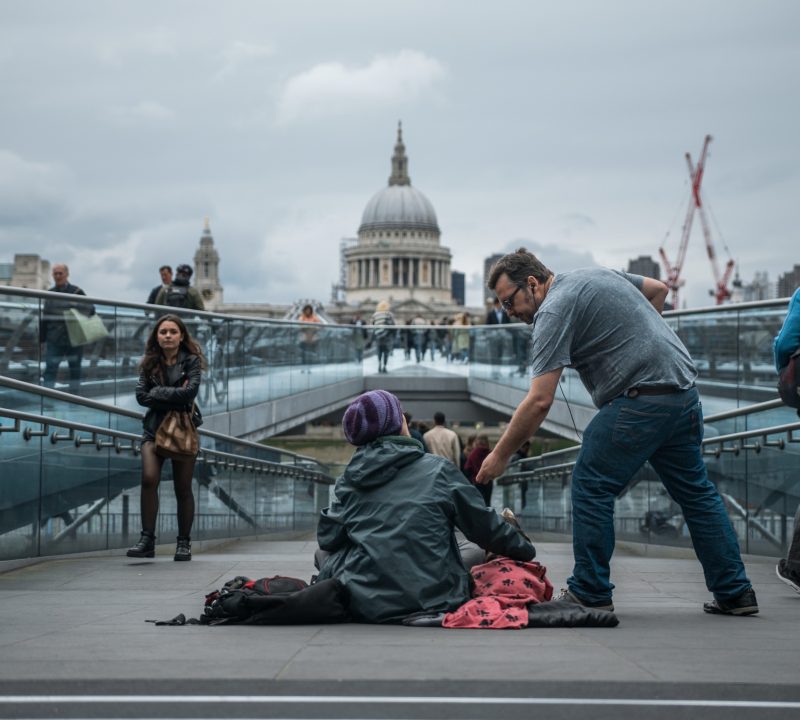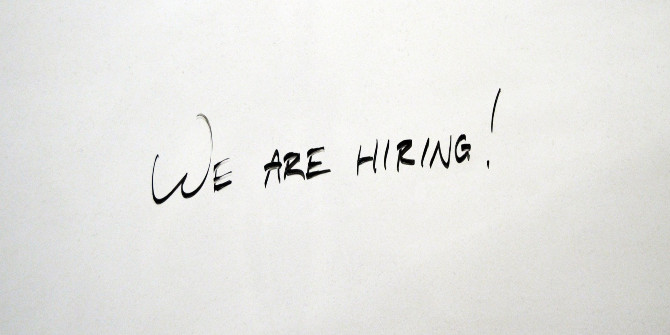 Relations between the government and the police have further deteriorated in the aftermath of the recent riots. Tim Newburn argues that, tempting though it might be to see this as a small-scale difficulty that will soon pass, in reality it is symptomatic of a long-standing unresolved tension between police and politics in Britain.
Relations between the government and the police have further deteriorated in the aftermath of the recent riots. Tim Newburn argues that, tempting though it might be to see this as a small-scale difficulty that will soon pass, in reality it is symptomatic of a long-standing unresolved tension between police and politics in Britain.
There has been something of a spat over the policing of the recent riots. The Prime Minister argued that the initial response was too timid and implied that it had taken government intervention to ratchet up police numbers on the streets and help restore calm. Sir Hugh Orde, President of the Association of Chief Police Officers (ACPO), responded by saying that the return of leading politicians from holiday had been an ‘irrelevance’ and that the subsequently ‘more robust policing tactics… were not a function of political interference; they were a function of the numbers being available to allow the chief constables to change their tactics.’ On the surface, the argument might have appeared to be simply about who could claim credit for the handling of the crisis. Beneath the surface, however, the bigger argument was about who controls police tactics and, more particularly, where the reasonable limits of political influence should lie. This is a long-standing issue in British policing and the fact that it remains so contentious persuades me that it should be the subject of a major official inquiry.
Phone hacking, the riots and the police
Whenever the police find themselves under pressure from politicians, one of their first ‘go-to’ defences is to argue that that it is vital that ‘politics is kept out of policing’. Quite what this is supposed to mean in reality is far from clear. Indeed, keeping politics out of policing may be precisely the reverse of what we want. Moreover, the events of the last few months should have provided the clearest illustration of sheer impossibility of keeping politics out of policing. The phone-hacking controversy and the role of the Metropolitan Police in that scandal, led quite rightly to sustained political and public debate about the relationship between the constabulary and the press and, to a lesser degree, about how the police should be governed and held to account. In the last week or so the Tottenham riots and the subsequent looting frenzies have stimulated considerable political controversy over a number of subjects, not just police numbers and public order tactics, but also about proposed government cuts, the introduction of elected police and crime commissioners, and the possibility of importing police chiefs from other countries to name but a few. If nothing else this should lead us to acknowledge that policing is necessarily a matter of politics. Yet the idea persists that the two should not mix.
‘Operational independence’?
Much of the confusion in this area stems from the idea of ‘operational independence’ – a vague and little understood ‘principle’ in British policing. The notion derives on the one hand from a number of legal judgements – most famously by Lord Denning’s 1968 observation that the chief constable is ‘answerable to the law and to the law alone’ – and on the other from legislation which makes chief constables responsible for the ‘direction and control’ of their forces. Were this idea (which is not defined anywhere in law) to be interpreted simply as meaning that senior police officers were free to use their professional judgement in individual cases free from political direction and then held to account for those decisions afterward, arguably this would not be a particularly contentious matter. However, in practice it tends to be used much more broadly. The vagueness of the distinction between matters that are ‘operational’ and those that are questions of ‘policy’ has meant that the ‘principle’ has been used by senior officers and others as a means of attempting to resist political influence much more generally.
Indeed, it is not just the police. Politicians themselves are far from immune from using such arguments. When the Labour government proposed reforms to policing in 2002, which included increasing the powers of the Home Secretary to intervene directly in forces deemed to be ‘performing poorly’, the Conservative opposition criticised the proposals for ‘threatening police independence’. More recently, former Labour Home Secretary Charles Clarke has attacked the government on a variety of the matters I have already mentioned – their proposals to introduce directly elected police and crime commissioners, the idea floated by the Prime Minister that Bill Bratton, ex-Commissioner of the New York Police Department be appointed to lead the Met, and attempts to influence how the police responded to the riots – on the grounds that each of these represented ‘political interference’ or encouragement of ‘direct political involvement in operational policing’.
There may well be good grounds for attacking each and all of these proposals, but ‘political interference’ is not one of them. The Prime Minister and the Home Secretary should be perfectly free to offer views on how the police should operate, how they should be governed, and how best they might be managed. That is not to say chief constables should respond slavishly to such views – that would be an unreasonable politicisation of the police – indeed they should be free to ignore them if they feel they have reasonable cause. That is to say, in relation to a particular police operation chief officers should be free not only to ignore political advice but to have their officers act in a quite different manner. Equally, having done so they must be accountable for their decisions in the aftermath. There should be operational freedom, but also accountability. It is in this sense that ‘operational independence’ is so obviously a misnomer.
The Independent Commission into the future of policing in Northern Ireland set up after the Good Friday agreement, chaired by Chris Patten, made precisely this point in 1999:
In a democratic society, all public officials must be fully accountable to the institutions of that society for the due performance of their functions, and a chief of police cannot be an exception. No public official, including a chief of police, can be said to be “independent”. Indeed, given the extraordinary powers conferred on the police, it is essential that their exercise is subject to the closest and most effective scrutiny possible. The arguments involved in support of “operational independence” – that it minimises the risk of political influence and that it properly imposes on the Chief Constable the burden of taking decisions on matters about which only he or she has all the facts and expertise needed – are powerful arguments, but they support a case not for “independence” but for “responsibility”. We strongly prefer the term “operational responsibility” to the term “operational independence”.
In fact what the Patten Commission raises is the possibility that we have too little rather than too much political scrutiny of policing, at least in some respects. Rather than keeping politics out of policing we need to be thinking much more clearly about how we go about inserting democratic influence much more centrally into policing. In recent decades the general drift has been toward ever greater central control of policing, and an ever-diminishing role for locally-elected representatives. Some fresh thinking about how local constabularies are to be influenced (what should be the extent of and the limits to political influence) and held accountable (how is this best managed) is long overdue. This is the case not least because the one obvious exception to the general trend toward centralisation – the high profile role of the Mayor of London in the governance of the Met – can hardly be said to have been an unmitigated success given that the force is looking for its second new Commissioner in the space of three years and the force itself appears to be stumbling from crisis to crisis.
Time for a Royal Commission?
So where do we go from here? Though they are deeply unfashionable, I remain of the view that this is the moment for a new Royal Commission on the Police. Governance and accountability ought to be its key theme, but there are other major unresolved issues that such a forum might also usefully consider including both the number and nature of police forces in England and Wales (the current 43 have been largely unchanged for the past 40 years), the resourcing of policing, and the independence and robustness of the complaints system.
Please read our comments policy before posting.








1 Comments